Sorted by date Results 1 - 25 of 31

Winter in Alaska is beautiful but hazardous. When temperatures drop below freezing, our bodies face risks from the cold. As we get older, these dangers become even more serious. But when you know what to watch for and how to respond, it can make all the difference between a minor problem and a medical emergency. Our bodies work hard to keep us warm, but sometimes the cold wins. Two main problems happen when we get too cold: frostbite and hypothermia. Frostbite happens when our skin and the...

The longer we occupy them, the more our homes become precious to us. They hold our memories and keep us comfortable through Alaska's long winters. But our homes can also become dangerous if we don't take steps to prevent fires. Every year, house fires injure thousands of older adults across the country. The good news is that with some simple changes, people can prevent most home fires. The kitchen is where most home fires start. When cooking, never leave food on the stove or in the oven...

One of the deadliest dangers in Alaskan winters is invisible, odorless, and silent. Carbon monoxide is a poisonous gas that kills people each year. For people with compromised respiratory systems or cardiac history, this invisible threat is especially dangerous. Carbon monoxide comes from things that burn fuel in your home. Your furnace, water heater, fireplace, and gas stove all make this deadly gas. Internal combustion vehicles and generators also produce it. When these items work properly...

As the days get shorter than the mercury in the old thermometer you still have outside, you may feel an urge to stay inside more. While it's natural to want to cozy up by the fireplace, too much sitting can seriously harm you. Let's talk about why staying active matters and how you can do it safely this winter. When we sit for long periods, our bodies get weak. Our muscles get smaller, and our bones become brittle. Blood doesn't flow as well, which can lead to dangerous clots in our legs. Our...
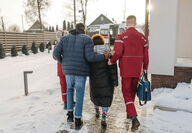
When a medical emergency happens, you may not be able to speak for yourself. That's why having an emergency medical file ready is one of the smartest things you can do to protect your health and safety. An emergency medical file is a simple folder or envelope that contains all your important medical information in one place. You know all those questions the EMTs and nurses and doctors ask so often? It's because the answers are key to the care you need. This file is your medical story told...

Technology might seem "extra" at first, but it can be your best friend during an emergency. Whether you're dealing with a winter storm, power outage, or medical crisis, the right apps and devices can help keep you safe and connected to help. Your smartphone is more than just a phone. It's a powerful emergency tool that fits in your pocket. Most phones come with built-in emergency features you might not know about. If you have an iPhone, you can press the side button five times quickly to call...
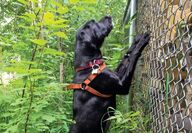
Our state brings us stunning scenery and the joy of wide-open spaces, but it also gives us harsh weather and natural disasters. Earthquakes, winter storms, wildfires, and flooding are all things to think about. Most of us have plans in place for our own safety, but what about our beloved pets? Dogs, cats, or other animals live with us, and it's just as important to plan for their safety, too. In an emergency, pets depend on us. Having a pet-friendly plan can make a big difference. If you have...
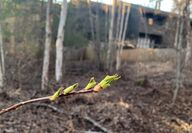
As our beautiful Alaska spring turns to summer, many people sneeze and sniffle more than their normal. Pesky seasonal allergies can make enjoying our gorgeous outdoors difficult. Let's go over helpful information about recognizing allergic reactions, treating them, and minimizing seasonal allergies. First, let's talk about how to know if you're having an allergic reaction. Mild to moderate symptoms include sneezing, runny or stuffy nose, watery or itchy eyes, and itchy throat. You might also...
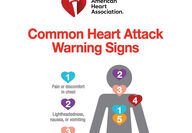
Heart attacks are a major health concern for older adults. Knowing what to watch for can save your life or the life of someone you care about. While a heart attack can happen suddenly and without warning, it can also start with small symptoms that are easy to miss. It's critical to recognize these signs and know what actions to take. The most common sign of a heart attack is chest pain or discomfort. This often feels like a heavy weight, tightness, or squeezing in the middle of your chest. It...

As Mount Spurr shows signs of potential activity, many Alaskans are wondering how to prepare for possible volcanic ashfall while maintaining their daily routines. Understanding how to protect ourselves and our homes during these events is crucial for everyone in our region. Being prepared for volcanic ash will help keep you safe and comfortable if an eruption occurs. Volcanic ash isn't like regular fireplace ash—it's made of tiny, sharp pieces of rock and glass that can hurt your eyes and lungs....

Having a clear and easy-to-find emergency contact list can save important time in a crisis. Today, I’ll share the key information you should have ready to keep you and your family safe. Let’s make sure you’re prepared for whatever might happen. First, write your emergency contact list in big, easy-to-read letters. Keep it in a place that’s simple to find, like on your fridge or next to your phone. Make a few copies—one for your wallet or bag, one for your nightstand, and one to give to a trus...

The power can go out any time, leaving us in the dark and potentially vulnerable. While outages are usually just an inconvenience, being prepared can help keep you safe and comfortable until the electricity returns. Get ready for power outages by keeping important items where you can easily find them. Your emergency kit should have three main things: flashlights with fresh batteries, a radio that works on batteries, and enough bottled water. Keep everything in a drawer or cabinet near where you...

As winter approaches and we spend more time indoors with our heaters running, I want to talk about a danger that claims hundreds of lives every year. Carbon monoxide gives no warning, even as it poisons you. This invisible, odorless gas is often called "the silent killer," and seniors are disproportionately vulnerable to its effects. Carbon monoxide is also called CO. It is not called CO2, which is a normal and necessary part of breathing. Every year in the United States, at least 430 people...

As we approach another long, dark winter, it's time to talk about something that affects many of us: Seasonal Affective Disorder, or SAD for short. Don't worry, we're not sad about talking about SAD! In fact, knowing more about it can help us stay happier and healthier during those chilly months. It affects more people than realize it, but not everyone recognizes the signs or knows how to combat it. SAD is a type of depression that shows up when the days get shorter and darker. Here in Alaska,...

By CHRISTIAN M. HARTLEY Let's use Fire Prevention Month to talk about something very important: Fire safety for those of us who might have trouble moving around quickly. Whether you use a wheelchair, a walker, or just find it harder to get around these days, it's crucial to have a good plan for getting out of your home if there's a fire or carbon monoxide leak. First, let's discuss making your home safer. Inspect around your home or apartment. Are there things in the way that could trip you up...
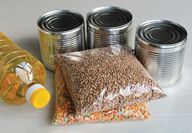
If Alaska has taught us anything, especially over the past few years, it's that life throws unexpected curveballs. That's why it's crucial to have a well-stocked pantry, especially in case of emergencies. Let's discuss how to prepare your pantry for unforeseen events and create a manageable plan to build your emergency food supply, but without a huge upfront cost. First, the importance of shelf-stable foods is paramount. These are items that can last for extended periods without refrigeration....

Cottonwood trees are spoiling the air with their seeds and causing a huge increase in seasonal allergies, so this is as good a time as any to explore how to handle allergies and discuss protecting ourselves at home from allergies. We will also talk about other allergies, as well. Let's talk about what you can do in your home to reduce allergens. Your heating and cooling systems can be great allies in the fight against allergies. During allergy season, running your air conditioning can help. It...

Summer is a wonderful time of year but even here in Alaska the heat can sometimes be intense, especially for seniors. That's why it's important to know how to prevent and treat heat-related illnesses like heat exhaustion and heat stroke, as well as sunburns. Sunburns To prevent sunburns, apply a broad-spectrum sunscreen with an SPF of 30 or higher to all exposed skin before going outside. Apply more every two hours, or more often if swimming or sweating. Wear protective clothing, such as...

As the weather warms up and people become more active, keeping first aid in front of our minds is important. Whether you are enjoying a hike, playing sports, or working in the garden, accidents can happen when you least expect them. By knowing basic first aid, you can treat common injuries and prevent more serious complications. One of the most common injuries during outdoor activities is falls. If you or someone you know experiences a fall, remember to stay calm. Check for any signs of injury...

Spring has sprung and the blooming flowers, buzzing bees, biting mosquitoes and trip hazards abound as you can finally get out of the house more often. With a few simple preparations, you can enjoy the summer months while minimizing potential risks to your health and well-being. One aspect of summer home safety is ensuring your air conditioning system is in good working order if you have one. Before the heat arrives, schedule a professional to inspect and maintain your AC unit. This will help...
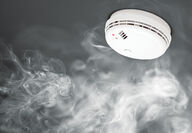
As the weather warms up and the days grow longer, it's the perfect time to tackle some spring cleaning around your home. This yearly tradition is not just about tidying up; it's also a good way to prepare for the upcoming wildfire season. By taking a few simple steps, you can help reduce the risks you face. First, let's start with the exterior of your home. Take a walk around your property, looking for any dead or dry vegetation such as leaves, twigs and branches. These can easily catch fire...

Falling down is no joke it's a serious threat for many people. But with some simple precautions, you can keep your balance and stay upright. I've slipped up a few times myself, so I've learned some tricks to avoid taking a tumble. Let me share what's helped me stay steady on my feet. First things first, stay active. I know it's easier said than done, but exercise truly is key. Something as simple as a daily walk keeps your muscles and joints limber. Yoga and tai chi are great, too. Just be sure...

Getting around and maintaining our independence gets more challenging every year. During some times of the year, it gets worse by the hour and the weather forecast. Fortunately, there is equipment to help people of all levels of mobility. These items, called assistive devices, are available through insurance or self-pay and can often be found in pharmacies. They range widely in price and upkeep needs, so here is some information on several types. Canes ($15-$75) are the most affordable option....

The ice, snow and cold of wintertime are hazards, but with caution and preparation, people can stay safe and enjoy the winter season with a decreased risk of falls and injuries. This is vitally important for people with poor balance, but applies to everybody. Keep clear pathways and remove tripping dangers. Keep walkways and hallways clear of clutter and debris and make sure there are no tangled extension cords or other hazards. Improving lighting, placing handrails on both sides of stairs, and...

As cold winter months intensify, it’s important that drivers take prepare their vehicles in case of snowstorms and the like. It’s especially important to have the proper supplies and safety items on hand in case you get stuck or stranded while driving in wintry conditions. Being prepared can help ensure your safety and peace of mind. One of the most important things to pack is a basic emergency kit. This should include items like blankets, warm clothing layers, gloves, hats, food that won...